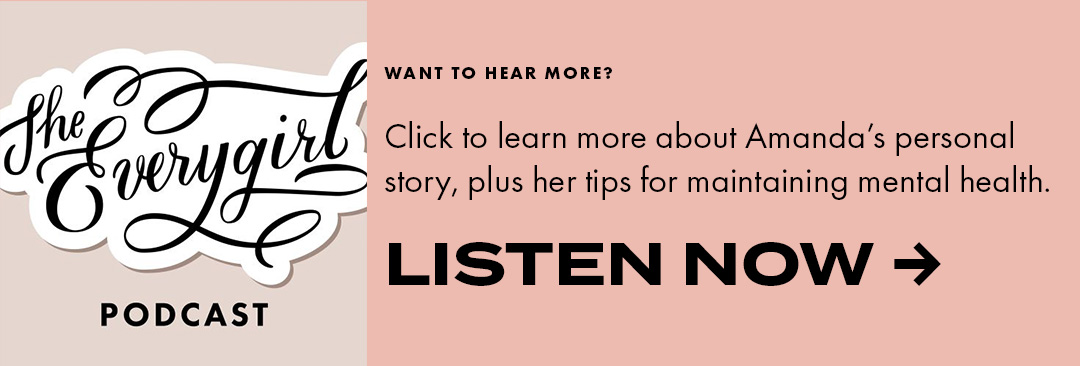Welcome to The Everygirl Podcast. Whether you’re looking for insider secrets from successful women that have your dream job, are interested in expert advice to transform your health and feel your best, or just want to be entertained and laugh along with us on your commute, we’ve got you covered.
Grief is a difficult part of being human. Whether it takes the form of mourning the loss of a loved one, or the loss of an experience, past self, relationship, or time in your life, many of us are grieving even when we may not necessarily realize it. This week on The Everygirl Podcast, we spoke with Amanda Kloots, host of The Talk and author of Live Your Life, to unpack the healing process and make grief less taboo.
In March 2020, Amanda lost her husband Nick Cordero to complications from COVID-19. Amanda shared the lessons she learned from this devastating experience in her book, Live Your Life, and continues to advocate for changing the way we think about sadness. No matter what you may be grieving, Amanda’s story and perspective on loss will inspire you to treat yourself kindly and reframe your outlook. Read on for Amanda’s top three tips for managing grief, and listen to this week’s episode of The Everygirl Podcast to hear her full story.
1. Let go of the fear of talking about your grief
According to Amanda, the number one problem with the way we treat grief in our culture is that we don’t discuss it nearly enough. Even if you do not feel that there is a stigma about sharing your experiences with grief and loss, mourning is a subject that not many people are comfortable with. “The mistake we make with grief is that we don’t talk about it, and people feel that they can’t talk about it,” Amanda said. “But every time I talk about [Nick’s death], it’s helpful and healing.”
If you’re struggling to work through grief, start by sharing your story. Whether you discuss your loss with family members, friends, a therapist, or even just get started by journaling about it, healing comes by sharing your experience with others. As Amanda points out, feeling less isolated in your emotions will help you in the long run.
2. Connect with your spirituality
Regardless of your belief system or whether or not you practice a religion, spirituality–or the belief and connection to something outside of the physical world–is a key part of wellness, and can be a key part of grieving. For Amanda, leaning into her spirituality after she lost Nick was crucial for her healing. “Since Nick has passed, it has almost made me feel comforted that when we go to the other side, we are still somehow here and that our souls and energy never go away,” Amanda said.
She also benefitted from rethinking loss through the “two inches away” concept, which she explains in detail on The Everygirl Podcast. If you are especially missing someone you have lost on a given day, keep your eyes peeled for signs of them—maybe in a beautiful sunset, a sighting of their favorite type of butterfly, or reflections of them in the loved ones you do still have with you—can help you work through your grief.
3. Reframe the way you think about the past with gratitude
Not to bring Taylor Swift language into an article about grief, but sometimes a helpful reframe for loss can be considering that past time in your life as an “era.” According to Amanda, thinking about her time with Nick as an “era” in her own life allowed her to approach her life with more gratitude and joy rather than sadness.
No matter who or what you may have lost, thinking about those happy memories in the past as unbreakable can totally shift the way you approach your own healing. Compartmentalizing your memories just might allow you to face your future after experiencing a loss with renewed positivity. “We have many different eras in our lives,” Amanda said. “Now you’re in a new era of your life, and it will also be filled with a lot of magic and good experiences.”



 "
"